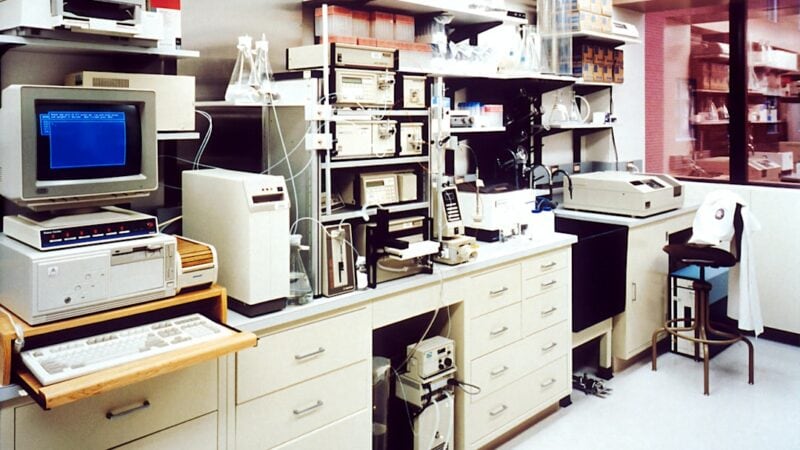Family History of Celiac Disease: What You Need to Know

Celiac disease is a chronic autoimmune disorder that affects the small intestine and is triggered by the consumption of gluten, a protein found in wheat, barley, and rye. It is estimated that approximately 1% of the global population has celiac disease, making it one of the most common genetic disorders worldwide. The impact of celiac disease goes beyond just physical symptoms, as it can significantly affect the quality of life for individuals and their families.
Understanding celiac disease is crucial for several reasons. Firstly, early detection and treatment can help prevent long-term complications and improve the overall health and well-being of individuals with the disease. Secondly, knowing the genetic factors involved in celiac disease can help identify at-risk individuals and guide screening and testing efforts. Lastly, understanding how celiac disease is inherited and who is at risk can help families make informed decisions about their health and future generations.
Table of Contents
Key Takeaways
- Celiac disease is an autoimmune disorder triggered by gluten consumption, causing damage to the small intestine and leading to various symptoms.
- Genetics play a significant role in celiac disease, with certain genes increasing the risk of developing the condition.
- Celiac disease can be inherited in an autosomal dominant or recessive pattern, with family history being a significant risk factor.
- Screening and testing options, such as blood tests and biopsies, are available to diagnose celiac disease accurately.
- Treatment and management strategies for celiac disease include a strict gluten-free diet, medication, and regular monitoring by a healthcare professional.
Understanding Celiac Disease: Definition and Symptoms
Celiac disease is an autoimmune disorder in which the body’s immune system mistakenly attacks the lining of the small intestine when gluten is consumed. This immune response causes inflammation and damage to the villi, which are small finger-like projections that line the small intestine and are responsible for absorbing nutrients from food.
The symptoms of celiac disease can vary widely from person to person. Some common symptoms include abdominal pain, bloating, diarrhea, constipation, fatigue, weight loss, and nutrient deficiencies. However, it’s important to note that not all individuals with celiac disease experience digestive symptoms. Some may have non-digestive symptoms such as anemia, osteoporosis, infertility, or neurological symptoms like headaches or numbness.
Early detection and treatment of celiac disease are crucial to prevent long-term complications such as malnutrition, osteoporosis, infertility, and an increased risk of certain types of cancer. If left untreated, celiac disease can lead to serious health problems and a reduced quality of life.
The Role of Genetics in Celiac Disease
Genetics plays a significant role in the development of celiac disease. It is estimated that up to 40% of the risk for developing celiac disease is due to genetic factors. The most important genetic factors associated with celiac disease are the HLA-DQ2 and HLA-DQ8 genes.
The HLA-DQ2 gene is present in approximately 90% of individuals with celiac disease, while the HLA-DQ8 gene is present in about 5-10% of individuals with the disease. These genes are responsible for encoding proteins that play a crucial role in the immune response to gluten. Individuals who carry either one or both of these genes have an increased risk of developing celiac disease.
Genetic testing can be a useful tool in identifying individuals who may be at risk for celiac disease. It can help determine if someone has the HLA-DQ2 or HLA-DQ8 gene, which can guide further screening and testing efforts. However, it’s important to note that not all individuals with these genes will develop celiac disease, and not all individuals with celiac disease will have these genes.
How Celiac Disease is Inherited: Autosomal Dominant vs. Recessive
Celiac disease can be inherited in different ways, depending on whether it follows an autosomal dominant or recessive inheritance pattern.
Autosomal dominant inheritance means that an individual only needs to inherit one copy of the gene from either parent to develop the disease. If one parent has celiac disease, each child has a 50% chance of inheriting the gene and developing the disease. If both parents have celiac disease, the risk increases to 75%.
Autosomal recessive inheritance means that an individual needs to inherit two copies of the gene, one from each parent, to develop the disease. If both parents carry the gene but do not have celiac disease themselves, each child has a 25% chance of inheriting the gene and developing the disease.
It’s important to note that even if an individual inherits the gene associated with celiac disease, it does not guarantee that they will develop the disease. Other factors, such as environmental triggers, also play a role in the development of celiac disease.
Family History of Celiac Disease: Who is at Risk?
Having a family history of celiac disease is one of the most significant risk factors for developing the disease. If a first-degree relative (parent, sibling, or child) has celiac disease, an individual’s risk of developing the disease increases to approximately 10%. This risk is significantly higher than the general population risk of 1%.
Other factors that may increase the risk of developing celiac disease include having other autoimmune disorders, such as type 1 diabetes or autoimmune thyroid disease, and certain genetic conditions like Down syndrome or Turner syndrome.
It’s important for individuals with a family history of celiac disease to be aware of their increased risk and to monitor for any symptoms or signs of the disease. Regular screening and testing may be recommended, especially if symptoms are present or if there are other risk factors present.
Diagnosing Celiac Disease: Screening and Testing Options

The diagnosis of celiac disease involves a combination of screening tests and confirmatory tests. The first step in diagnosing celiac disease is usually a blood test to check for specific antibodies that are produced in response to gluten consumption. If the blood test results are positive, further testing may be done to confirm the diagnosis.
The gold standard for confirming a diagnosis of celiac disease is an endoscopy with biopsy. During an endoscopy, a small tube with a camera is inserted into the mouth and down into the small intestine to examine the lining and take small tissue samples (biopsies). These tissue samples are then examined under a microscope to look for the characteristic damage to the villi.
It’s important to note that in order for the biopsy to be accurate, individuals must be consuming gluten in their diet at the time of the procedure. If someone has already started a gluten-free diet before testing, it may lead to false-negative results.
Accurate diagnosis is crucial for effective treatment and management of celiac disease. It allows individuals to make necessary dietary changes and seek appropriate medical care to prevent long-term complications and improve their quality of life.
Living with Celiac Disease: Treatment and Management Strategies
The primary treatment for celiac disease is a strict, lifelong gluten-free diet. This means avoiding all foods and products that contain gluten, including wheat, barley, rye, and any derivatives or cross-contaminated products. Following a gluten-free diet can be challenging, as gluten can be found in many unexpected sources such as sauces, dressings, and even medications.
In addition to a gluten-free diet, some individuals may require medication or other therapies to manage symptoms or complications associated with celiac disease. For example, if an individual has severe inflammation or damage to the small intestine, they may need medication to reduce inflammation and promote healing. Other therapies such as nutritional supplements or hormone replacement therapy may be necessary to address specific nutrient deficiencies or hormonal imbalances.
Ongoing care and monitoring are essential for individuals with celiac disease. Regular follow-up appointments with healthcare providers can help ensure that the gluten-free diet is being followed correctly and that any potential complications or nutrient deficiencies are addressed promptly.
Gluten-Free Diet: What You Need to Know
Following a gluten-free diet can be challenging but is essential for individuals with celiac disease. It requires careful reading of food labels and being aware of potential sources of cross-contamination. Foods that should be avoided include wheat, barley, rye, and any products made from these grains. This includes bread, pasta, cereals, baked goods, and many processed foods.
Fortunately, there are many gluten-free alternatives available, including gluten-free bread, pasta, and flour. It’s important to note that not all gluten-free products are created equal, and some may still contain traces of gluten. It’s essential to look for products that are certified gluten-free and to be cautious when dining out or eating at someone else’s home.
Maintaining a healthy and balanced diet is crucial for individuals with celiac disease. It’s important to focus on consuming a variety of nutrient-dense foods such as fruits, vegetables, lean proteins, and whole grains that are naturally gluten-free, such as quinoa or rice. Working with a registered dietitian who specializes in celiac disease can be helpful in developing a personalized meal plan and ensuring proper nutrition.
Coping with a Celiac Diagnosis: Emotional and Psychological Impact
Receiving a diagnosis of celiac disease can have a significant emotional and psychological impact on individuals and their families. It can be overwhelming to navigate the challenges of following a strict gluten-free diet and managing the potential complications associated with the disease.
Common challenges faced by individuals with celiac disease include feelings of isolation or exclusion in social situations where food is involved, anxiety about cross-contamination or accidental gluten exposure, and frustration with the limited availability of gluten-free options in certain settings.
Coping strategies can vary from person to person but may include seeking support from loved ones or joining support groups for individuals with celiac disease. Connecting with others who understand the challenges of living with the disease can provide a sense of community and validation. It’s also important to educate oneself about celiac disease and to stay up-to-date on the latest research and treatment options.
Seeking professional help from a therapist or counselor who specializes in chronic illness or autoimmune disorders can also be beneficial in managing the emotional and psychological impact of a celiac diagnosis. They can provide tools and strategies for coping with stress, anxiety, or depression that may arise as a result of living with the disease.
Support Groups and Resources for Celiac Patients and Families
There are numerous support groups and resources available for individuals with celiac disease and their families. These resources can provide valuable information, support, and a sense of community for those affected by the disease.
Online communities and forums, such as the Celiac Disease Foundation’s online support group or the Celiac.com forum, can be a great way to connect with others who understand the challenges of living with celiac disease. These communities allow individuals to ask questions, share experiences, and provide support to one another.
Local support groups can also be a valuable resource for individuals with celiac disease and their families. These groups often organize events, educational sessions, and social gatherings where individuals can connect with others in their community who are living with the disease.
In addition to support groups, there are also many educational resources available to help individuals learn more about celiac disease and how to manage it effectively. The Celiac Disease Foundation, Beyond Celiac, and the National Celiac Association are just a few examples of organizations that provide comprehensive information on celiac disease, including diagnosis, treatment, and lifestyle management.
Preventing Celiac Disease: Can it be Avoided?
Currently, there is no known way to prevent celiac disease. The development of the disease is thought to be influenced by a combination of genetic factors and environmental triggers. While it’s not possible to change one’s genetic makeup, there is ongoing research into potential environmental factors that may play a role in triggering celiac disease.
Some studies suggest that factors such as the timing of gluten introduction during infancy or breastfeeding practices may influence the risk of developing celiac disease. However, more research is needed to fully understand these potential risk factors and their impact on disease development.
It’s important to note that there are no proven strategies for preventing celiac disease at this time. The best approach is to be aware of the risk factors, monitor for symptoms, and seek medical attention if any concerns arise.
Celiac disease is a chronic autoimmune disorder that affects the small intestine and is triggered by the consumption of gluten. Understanding celiac disease and its various aspects is crucial for individuals and families affected by the disease.
By understanding the definition, symptoms, and genetic factors associated with celiac disease, individuals can be better equipped to identify at-risk individuals and seek appropriate screening and testing. Diagnosing celiac disease accurately is essential for effective treatment and management, which primarily involves following a strict gluten-free diet.
Living with celiac disease can be challenging, both physically and emotionally. However, there are numerous support groups and resources available to help individuals cope with the challenges of living with the disease. Ongoing research into preventing celiac disease may provide valuable insights into potential risk factors and strategies for reducing the risk of developing the disease in the future.
In conclusion, it is crucial to continue educating ourselves and supporting those affected by celiac disease. By raising awareness and providing resources, we can help individuals and families navigate the challenges of living with this chronic autoimmune disorder.
If you’re interested in learning more about kidney health, you might find this article on “8 Tweaks of Why Do My Kidneys Hurt at Night?” informative. It discusses common reasons for nighttime kidney pain and offers helpful tips to alleviate discomfort. Understanding kidney function and location is crucial for maintaining overall health, and this article on “8 Kidney Function and Location” provides a comprehensive overview. Additionally, if you want to delve deeper into the topic of kidney failure after a heart attack, “All About Kidney Failure After Heart Attack” explores the connection between these two conditions and offers insights into prevention and treatment strategies.
FAQs
What is celiac disease?
Celiac disease is an autoimmune disorder that affects the small intestine. It is triggered by the consumption of gluten, a protein found in wheat, barley, and rye.
What are the symptoms of celiac disease?
Symptoms of celiac disease can vary widely and may include abdominal pain, bloating, diarrhea, constipation, fatigue, and weight loss.
How is celiac disease diagnosed?
Celiac disease is typically diagnosed through blood tests and a biopsy of the small intestine.
Is celiac disease hereditary?
Yes, celiac disease has a strong genetic component. If a close family member has celiac disease, your risk of developing the condition is increased.
What is the connection between family history and celiac disease?
Having a family history of celiac disease increases your risk of developing the condition. If you have a first-degree relative with celiac disease, your risk is approximately 10%.
Can celiac disease be prevented?
There is no known way to prevent celiac disease, but early diagnosis and treatment can help manage symptoms and prevent complications.
What is the treatment for celiac disease?
The only treatment for celiac disease is a strict gluten-free diet. This means avoiding all foods and products that contain wheat, barley, and rye. In some cases, nutritional supplements may also be recommended.






